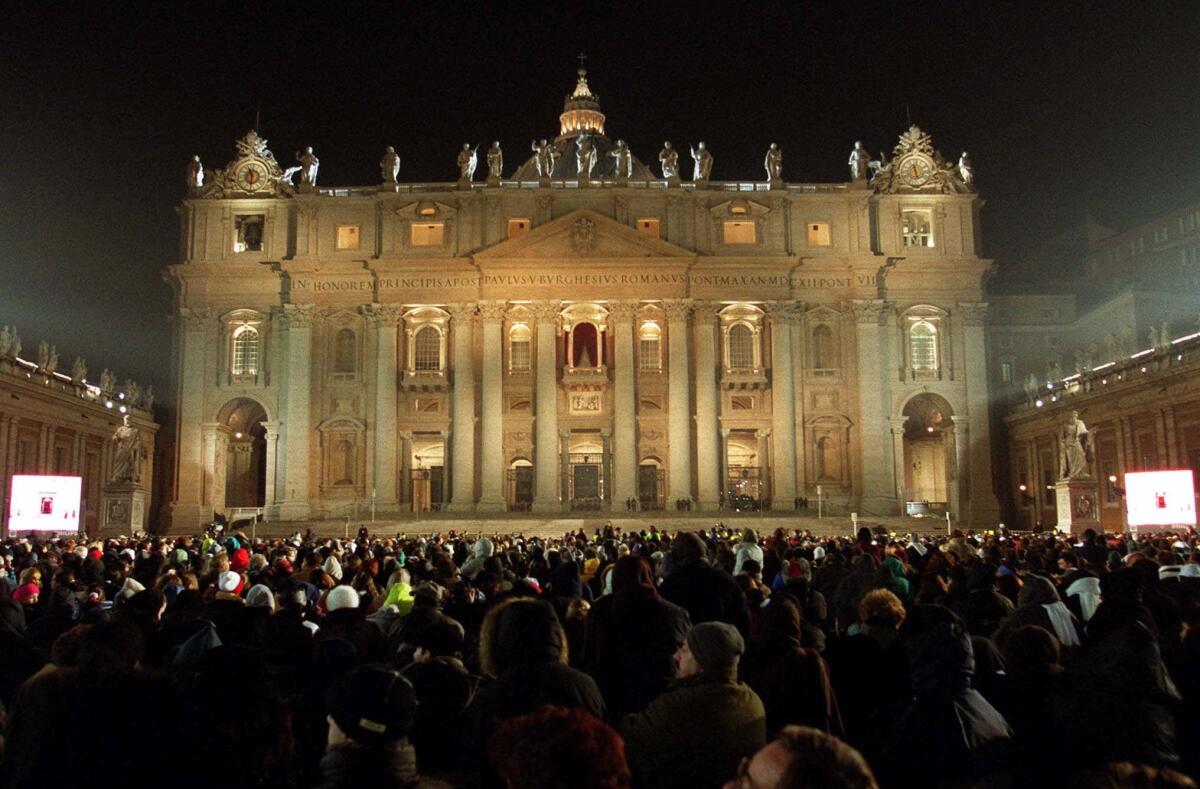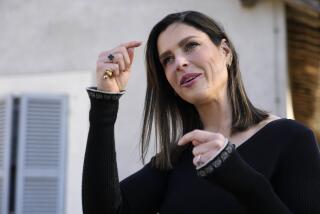The U.N. goes too far in faulting the Vatican for its theology

- Share via
A United Nations committee made headlines this week when it released a report criticizing the Vatican — a nation-state as well as the center of Roman Catholicism — for allowing priests to abuse tens of thousands of children over the years. The report issued by the U.N. Committee on the Rights of the Child also urged a new commission established by Pope Francis to order an independent investigation of all abuse cases and establish clear rules for the mandatory reporting of abuse to police.
Fair enough. As long as the church retains the mantle of statehood — a throwback to the papal states that disappeared in the 1870s — it can’t accuse the U.N. of meddling when it calls attention to a truly scandalous dereliction of duty. When it signed the U.N. Convention on the Rights of the Child, the Vatican agreed to render at least some fealty to the multinational Caesar.
But the committee didn’t stop at faulting the Vatican for lax supervision of abusive priests or recommending reforms. It also decided to instruct the Vatican about problems with the church’s moral teachings.
Sister Mary Ann Walsh, the spokeswoman for the U.S. Catholic bishops, said the committee was undermining a noble cause by “stray[ing] into the culture wars to promote abortion, contraceptives and gay marriage.”
She has a point. Francis may be talking less about abortion than his predecessors, but the church continues to regard it as a grave evil. But the committee “urges the Holy See to review its position on abortion, which places obvious risks on the life and health of pregnant girls,” and to revise canon law to identify “circumstances under which access to abortion services can be permitted.”
For good measure, the committee suggested that the Vatican reconsider “the negative consequences of the Holy See’s position and practices of denying adolescents access to contraception,” and that it “remove from Catholic schools all gender stereotyping, which may limit the development of the talents and abilities of boys and girls.” That presumably would mean trashing theology textbooks that explicate the church’s position that only little boys can grow up to be priests.
I looked at the Convention on the Rights of the Child and found it hard to justify the committee’s doctrinal kibitzing on the basis of that text. For example, it’s a reach to argue that the treaty’s reference to “health care services” overrides the church’s teachings about birth control and abortion.
The treaty also says that participating states should protect children against “all forms of discrimination,” including sex discrimination. But the Roman Catholic Church doesn’t believe that its insistence on an all-male priesthood is discrimination. Nor would it accept that characterization of the church’s view of the “complementarity” of males and females rooted in Genesis (“male and female he created them”).
And the Vatican can find comfort in other language in the convention. For example, it emphasizes that children have a right to religious freedom and that parents and guardians have the right to “provide direction to the child” in the exercise of that right. In Catholic families, that direction leads to the Bible and papal encyclicals.
But this proof-texting is besides the point. No one thought that by signing the convention the Vatican was delegating authority over religious doctrine to the United Nations. By acting as if that was the case, the Committee on the Rights of the Child undermined its credibility. It’s an unholy embarrassment for the U.N.
ALSO:
Red vs. blue: The battle lines of 2014
Playing politics with California’s drought
Morrison: Alyssa Milano, media actorvist
Follow Michael McGough on Twitter @MichaelMcGough3
More to Read
A cure for the common opinion
Get thought-provoking perspectives with our weekly newsletter.
You may occasionally receive promotional content from the Los Angeles Times.







